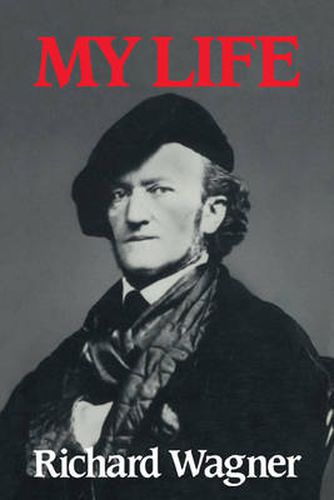Readings Newsletter
Become a Readings Member to make your shopping experience even easier.
Sign in or sign up for free!
You’re not far away from qualifying for FREE standard shipping within Australia
You’ve qualified for FREE standard shipping within Australia
The cart is loading…






This reprint is of the first English paperback edition of Richard Wagner’s autobiography. This is a primary document of enormous importance for all Wagner enthusiasts, being virtually the sole source of information of the composer’s childhood and youth. Written for Wagner’s second wife, Cosima, and his patron, King Ludwig II, the autobiography runs from the composer’s birth up to the eve of his fifty-first birthday in 1864. Given the intended readership and the circumstances of its composition it is hardly surprising that Wagner should either omit or distort facts from time to time: he does not linger over previous affairs, he portrays his relationship with his first wife, Minna, as a good deal more distant than it really was and he plays down his involvement in the Dresden uprising of 1849. Despite all this, the book presents a panoramic view of Wagner’s times and contemporaries and offers a unique perspective on the operas themselves. This translation is of the complete edition published in Munich in 1963 and based on the manuscript in the Wagner Archives in Bayreuth. Wagner’s slips of memory are noted, as are references to obscure names and events.
$9.00 standard shipping within Australia
FREE standard shipping within Australia for orders over $100.00
Express & International shipping calculated at checkout
This reprint is of the first English paperback edition of Richard Wagner’s autobiography. This is a primary document of enormous importance for all Wagner enthusiasts, being virtually the sole source of information of the composer’s childhood and youth. Written for Wagner’s second wife, Cosima, and his patron, King Ludwig II, the autobiography runs from the composer’s birth up to the eve of his fifty-first birthday in 1864. Given the intended readership and the circumstances of its composition it is hardly surprising that Wagner should either omit or distort facts from time to time: he does not linger over previous affairs, he portrays his relationship with his first wife, Minna, as a good deal more distant than it really was and he plays down his involvement in the Dresden uprising of 1849. Despite all this, the book presents a panoramic view of Wagner’s times and contemporaries and offers a unique perspective on the operas themselves. This translation is of the complete edition published in Munich in 1963 and based on the manuscript in the Wagner Archives in Bayreuth. Wagner’s slips of memory are noted, as are references to obscure names and events.